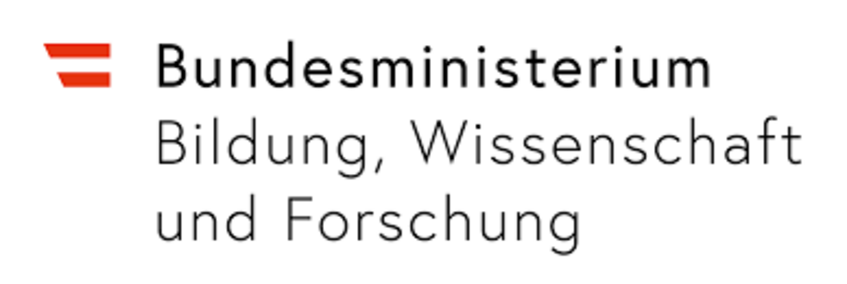Welcome to the project website of "Digitize! Computational Social Sciences in the digital and social Transformation"
Digitize! is a cooperative digitalisation project in which various social sciences collaborate with data scientists, legal scholars and experts in research ethics.
The collaboration comprises numerous researchers from various partner organisations across Austria:
- University of Vienna
- University of Linz
- University of Graz
- University of Salzburg
On this website you may find further information on participating researchers and universities, the project's structure, goals and work program.
We hope you enjoy reading!
Latest project news
PLUTO/PubVal– Public Value Tool
Assessing Public Value: A Tool for Structured Assessment, developed by Seliem El-Sayed & Barbara Prainsack
PLUTO/PubVal is the first iteration of a structured assessment intended to assist data controllers and applicants in determining whether a given data use creates ‘significant public value without posing unacceptable risks’. Within the solidarity-based data governance framework, data uses that create significant public value in this manner ought to be facilitated. The tool consists of 31 questions in four categories:
1) Information about the applicant
2) Benefits of the applicant’s activity
3) Risks of the applicant‘s activity
4) Institutional safeguards
Most questions require an answer on a nominal scale and reasons for choosing the answers must be provided throughout the tool. The questions are assigned different weights and result in a score that indicates how much public value the intended data use creates. The tool integrates and adapts criteria developed within various relevant frameworks (e.g. the UN Guiding Principles on Business and Human Rights) and is supplemented with new criteria that emerged during the project. It is tailored towards any institution wanting to assess the public value of its (planned) data use. It can also be relied on by data brokers or government agencies, from whom data is being requested.
Any attempt to provide a score pertaining to a complex concept such as public value comes with trade-offs. Defining public value and acknowledging the deep value pluralism in contemporary societies as to what type of society is deemed desirable is a core difficulty. Our conception of public value for the purpose of this tool focuses on the sustainability of benefits, the extent to which these benefits address future societal needs, the distribution of benefits, the nature and severity of (conceivable) harm, the stability of safeguards, that is routine risk assessment prior to and during the deployment of the data use, and the possibility of correcting occurred harm swiftly and effectively.
No single tool can be a sufficient, unambiguous, and stable determination of the public value that data use creates. Nevertheless, when implicit ideas on how such value is constituted are reflected and named, this can be of great help in guiding a structured assessment. While questions may be added or amended; or their weighting may be altered in the course of future work, this tool serves as a first iteration of assessing public value of data use.
Digitize!-Panel
Start of the 3rd panel survey wave
In mid-November 2022 Digitize! started with postal recruitment for the third wave of the Digitize! survey. 10,000 letters are being send - on the basis of § 2d FOG for scientific purposes - to a representative sample throughout Austria!
All information and ongoing updates can be found here.
Open Educational Ressources - Seltene, aber wichtige Implusgeber für die Digitalisierung der Lehre?
In AP5 wurde im letzten Jahr die Lage von deutschsprachigen offen zugänglichen Methodenlehrinhalten analysiert. AP5-Leiter Dimitri Prandner und Mitarbeiter Matthias Forstner präsentieren die Ergebnisse in Journal "Frontiers in Education" und auf der HEAd'22 Konferenz:
- Frontiers | Are There Enough Open Educational Resources Dealing With Social Science Research Methods? Insights From the D-A-CH Region (https://www.frontiersin.org/articles/10.3389/feduc.2022.902237/full)
- HEAd'22 | Open Educational Resources for Social Science Research Methods – A Case Study from the D-A-CH-Region (http://ocs.editorial.upv.es/index.php/HEAD/HEAd22/paper/view/14573/6890)
Einen Einblick in das Datenset und Code-Beispiele kann man auf Zenodo finden:
- ZENODO | Overview: GERMAN LANGUAGE OER FOR SOCIAL SCIENCE METHODS EDUCATION (https://zenodo.org/record/6603205#.YvYKYPjP3dk)
Die Ergebnisse können Sie hier nachlesen.
Digitize!-Panel
Start of the second panel survey wave
At the beginning of June 2022, Digitize! starts with postal recruitment for the second wave of the Digitize! survey. 8,000 letters are being send - on the basis of § 2d FOG for scientific purposes - to a representative sample throughout Austria!
All information and ongoing updates can be found here.
Research, Data and the Law
Digitize! comments on new copyright legislation
Digitize! publishes its position regarding Austria's new draft legislation on copyright law: read here how we assess the potential impacts on scientific research with text and data mining.
Digitize! in Ars Aequi podcast
Check out how the Digitize! project is presented by Filip Paspalj and Seliem El-Sayed in this new podcast!
The Podcast Ars Aequi. Law and Technology is hosted by Paul Eberstaller (himself a Digitize! team member) and Tima Otu Anwana from the Department for Innovation and Digitalisation in Law (University of Vienna, Digitize! partner and lead of WP 7). At the crossroads of law and digital technologies, the two hosts regularly discuss the newest topics such as "fake news", "revenge porn" or - as in Episode 6 - the department's ongoing research projects.
Enjoy listening and learning about Digitize! from Seliem and Filip!
Digitize! MOOC
May 2021
In 2022, the Digitize! project will produce and publish its own MOOC (Massive Open Online Course) in cooperation with the digitalisation project iMOOX and the Center for Teaching and Learning at the University of Vienna!
Currently, the Digitize! team is preparing the first draft concept for this free online course.
We are looking forward to this great collaboration and will keep you updated!
New publication by Seliem El-Sayed and Barbara Prainsack in Harvard Data Science Review
Blue Chips and White Collars: Whose Data Science Is It?

Digitize! is funded under the 2019 Call 'Digital and social Transformation in University Education' by the Federal Ministry of Education, Science and Research.
